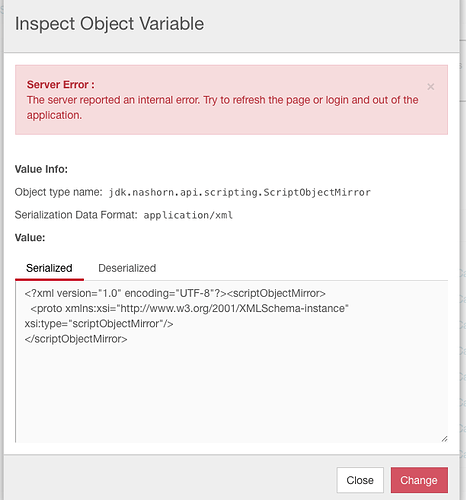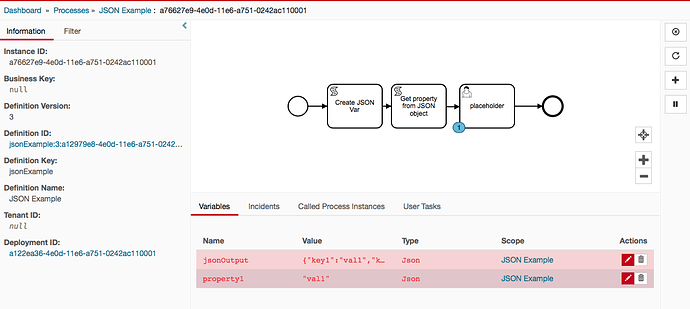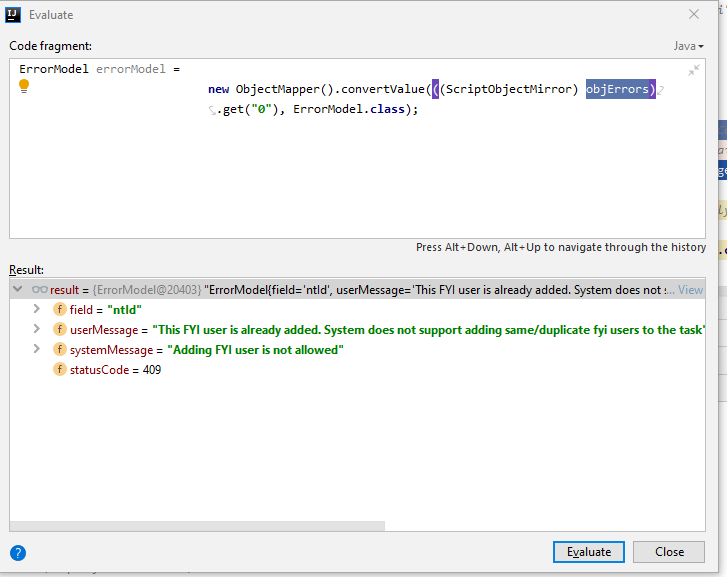Is there any benefits of using SPIN for JSON when using JS Scripting compared to using JSON.Parse() and JSON.stringify() to work with the JSON as a JS object?
When you parse a string of json using JSON.parse you get a Object of jdk.nashorn.api.scripting.ScriptObjectMirror
although Cockpit is currently not able to read it:
Whenever you create a Javascript object and hand that to a Java API, the Nashorn engine wraps it in a ScriptObjectMirror. The class is not friendly to (de-)serialization and if I remember correctly instances are even tied to a ScriptingEngine instance. So if you want to set such objects as a process variable, I think a good practice is to transform it into a Spin JSON object (e.g. via S(JSON.stringify(javascriptObj)) in your script).
Cheers,
Thorben
tied to script engine
Good point! That is a good insight.
on a side note: Why does JSON objects show up as red rows in Cockpit when inspecting the process variables of a process?
Can you please post a screenshot?
jsonExample.bpmn (4.8 KB)
Create JSON Var:
javascript Script Task (jsonOutput):
var jsonInfo = {"key1":"val1", "key2":"val2"};
S(JSON.stringify(jsonInfo));
Get property from JSON object:
javascript Script Task (property1):
var json = execution.getVariable("jsonOutput");
json.prop("key1");
The validation of JSON and XML variables is currently not working correctly in Cockpit. I created a bug ticket for that: https://app.camunda.com/jira/browse/CAM-6436
@sebastian.stamm thanks!

<?xml version="1.0" encoding=UTF-8"?><scriptObjectMirror>
<proto xmlns:xsi="www.w3.org/2001/XMLSchema-instance"
xsi:type="scriptObjectMirror"/>
</scriptObjectMirror>
To point “The class (ScriptObjectMirror) is not friendly to (de-)serialization”
this is not true statement.
I was able to deserialize it successfully.
VariableMap variables = response.getVariables(); // response is response from camunda engine
Object objErrors= variables.get(“errors”);
ErrorModel errorModel =
new ObjectMapper().convertValue(((ScriptObjectMirror) objErrors).get(“0”), ErrorModel.class);


